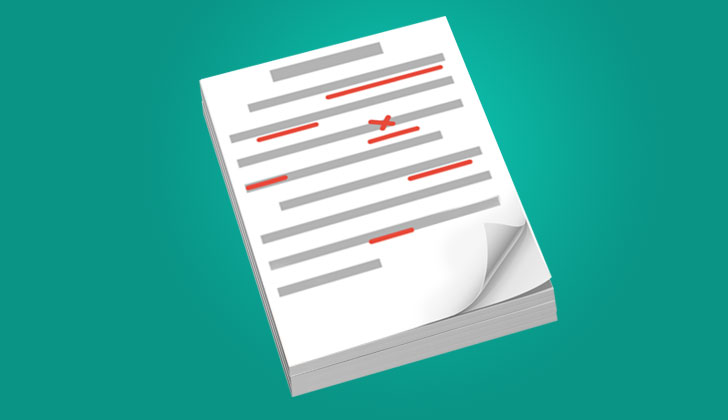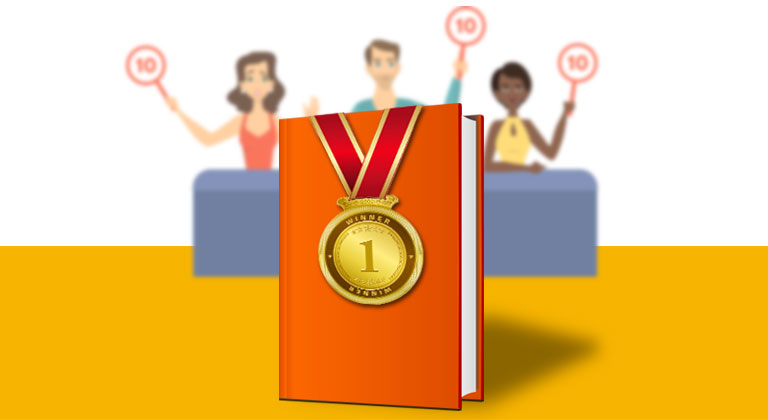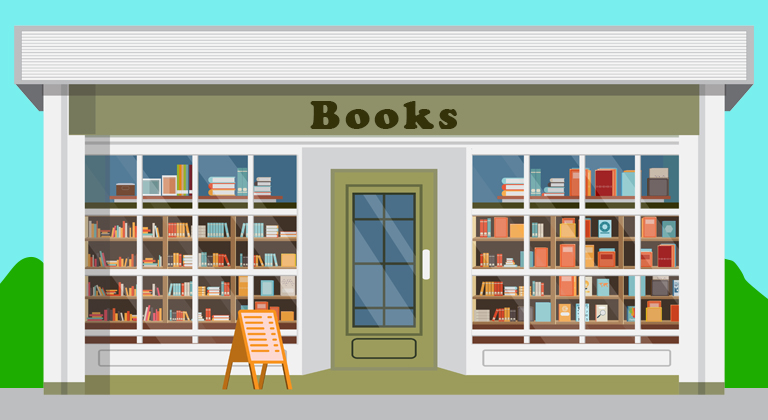Three Things My Developmental Editor Fixed
By: C.J. Persson | Posted on March 8, 2019
One of the many jobs (aside from actually writing your book) that a self-publishing author has to worry about is hiring their own editor. Even the most seasoned pros hire editors, as there will always be things you miss after staring at your own book for weeks on end – but what type of editing do you need? Today, author C.J. Persson takes us through the three main ways a developmental editor helped improved his debut novel, and how to watch out for those same issues in your own work. In January 2018 I had burned out and I quit my job. I had a manuscript rattling around in my proverbial desk drawer and figured this was the perfect time to self-publish it. There was one problem though, my novel didn’t sing. I needed a developmental editor. This is not to be confused with a line- or copy-editor. They help polish… Read More >
Combined Knowledge: You and Your Subject Matter Expert
By: Robin Reardon | Posted on February 22, 2019
We’ve published articles in the past about the importance of writing what you know vs writing to market, or about using personal experiences to fuel your stories – but what about when you want to step outside of your comfort zone? In that case, you need to do your research. Author Robin Reardon has a lot of experience with this, and today she’s giving us her advice on when you can research something on your own, or when (and how) it’s better to find and contact a subject matter expert. There’s a maxim fiction authors hear all the time: Write what you know. That’s fine, as far as it goes. But does it go far enough? Not for me. But sometimes I need help. Because while much of fiction writing is making up stories, many novels are grounded in real world settings, touch on historical events, or include characters with a… Read More >
Make Newsletters A Part of Your Marketing Plan
By: Jane Ryder | Posted on December 7, 2018
Newsletters are one of the best ways for authors to reach their audience, and should be part of any overall marketing or promotional strategy. Yet many authors are hesitant to get started with one, for a variety of reasons – all of which Jane Ryder has heard before. Jane’s been helping authors succeed for many years, and today she’s giving us all some tips on not only how to get started with your newsletter, but how to make it as painless as possible! A lot of authors I work with fight the idea of sending out a regular newsletter even more than they fight the idea of regularly engaging on social media (which is saying something). I understand you would rather be devoting your writing time to, you know, writing, but if you want to sell the books you write, you have to spend some of your coveted writing time… Read More >
Tax Tips: When Should An Independent Publisher Use A 1099?
By: John Endris | Posted on November 2, 2018
With tax season approaching, authors in the USA have to start worrying about the IRS and various forms they need to fill out – especially if they aren’t making enough money to warrant hiring an accountant to handle it all for them. One of the forms that independent publishers have to think about most is the 1099, and when it should or shouldn’t be used. That’s why we’ve asked John Endris, a guy who wrote the book on this sort of stuff, to give us all a quick primer. Most independent publishers cannot afford to hire editors, cover artists, and assistants as a full or even part time employee. Therefore, they usually maintain a network of independent contractors (IC) to do these jobs for them. Like them, those workers are also small businesses, who have the same ability to make a profit or sustain a loss. Since they are also… Read More >
Making Magic Work In Your Novels
By: Gail Z. Martin | Posted on October 19, 2018
A convincing magic system can make or break a fantasy novel, and is often the best remembered aspect of the book or series. Growing up, I read a lot of Fantasy – from Piers Anthony’s Xanth and David Eddings’ Belgariad, to Terry Goodkind’s Sword of Truth series or Robert Jordan’s Wheel of Time – I remember these books most fondly because of the rich and diverse magic systems that their worlds were built on. But coming up with those sorts of systems and worlds from scratch is a daunting task that requires a lot of thought and planning, and that’s why we turned to Gail Martin for an article on the subject. Gail is a prolific novelist who is very experienced at coming up with complex and varied magic systems, having done so for many of her own books and series. Here are her tips on how to make magic work… Read More >
Let Experiences and Emotions Fuel Your Writing
By: Stephen Bentley | Posted on October 5, 2018
As I mentioned in a previous article, the idea of writing what you know isn’t meant to be taken strictly literally and as today’s guest author Stephen Bentley puts it, the saying might be better expressed as “write what you feel”. Your experiences and emotions can be a great source of fuel for your imagination, and are the root of many great fiction novels. Learning to harness these experiences and draw from them is essential to authentic writing that draws the reader in to make them feel like they’re part of your story or world. ‘Write what you know’ is an old adage. Possibly older than me. I am now seventy-one years old. I started writing books three years ago. I guess another appropriate adage is ‘you are never too old to learn or to start.’ I have written an Amazon UK bestseller about my undercover cop days. I started… Read More >
How Short Story Writing Can Improve Your Novels
By: Kate Larkindale | Posted on September 21, 2018
When you’re new to something, a common bit of advice is to start small and work your way up to bigger and better things. This applies to writers just as well as anyone else, and is the reason short story writing often comes before novels for many authors. Kate Larkindale understands first hand why this is good advice, and she’s here giving us all the reasons why writing short stories can make you a better novelist – whether you’re just beginning your career or already well established. I wrote my first novel when I was still a teenager. Barely a teenager. I’d never written anything except stories for school before, and had no idea what I was doing. And the finished novel was a complete mess. So were the next two I attempted, and the fourth. It wasn’t until I took a step away from pouring myself into novel after… Read More >
Notes From a Writing Contest Judge
By: Anne Lovett | Posted on August 24, 2018
Many authors get their start by entering writing contests – either for the experience or just because of the added push a win or placement gives to their ego. Other writers find them intimidating, unsure if they have what it takes simply because they don’t know what to expect. So who better to give us the rundown on writing contests than Anne Loveet – a published author who doubles as a writing contest judge herself? I like to “give back” to the organizations that help me in my writing journey, and one way is to be a contest judge. This year, I’ve judged for the Golden Heart, the Daphne du Maurier contest, and our local RWA (Romance Writers of America) chapter contest, the Maggies. I’ve seen the gamut from wonderful manuscripts ready to publish to a few I could barely get through. Have questions about writing contests and judging? Here… Read More >
Break Through Your Fears And Write That First Book!
By: David Falkirk | Posted on August 10, 2018
Writing a book is hard, but even harder is writing that first book. How many great novelists have we never even heard of because they couldn’t push past their fears or self-doubt? Like most fears, the ones around writing stem from the unknown. Do you even know how to write a book? Will anyone read it? Will anyone like it? For those that push through, they eventually find those answers – which explains why subsequent books are often much easier to write – but what about everyone else? For a long time, David Falkirk was in that everyone else category but he eventually broke through and is now the author of multiple novels. He’s sharing what he learned and how he did it so that you can finish your first book as well. It wasn’t procrastination. Not exactly. I’ve known I wanted to be a writer — an author — since… Read More >
A Writing Plan Can Help Your Novel Get Started… and Finished!
By: Tracy Brenton | Posted on June 29, 2018
Making time for writing is one of the biggest challenges of beginner writers, often because to do so means juggling an already full schedule. Jobs, family obligations, or the myriad of other routines in our lives all compete with writing time – but that doesn’t mean you should give up on the dream of writing a book. You just have to figure out a plan to make it happen, and then stick with it. Everyone’s lives are unique, which means the details of your writing plan will be different than those of someone else – but that’s okay. The point of the plan isn’t so much the details, but how it helps you focus and keeps you from being overwhelmed. To that end, author Tracy Brenton shares her story of how she started writing and the details of the plan that led to her success. Maybe it can help inspire… Read More >

















